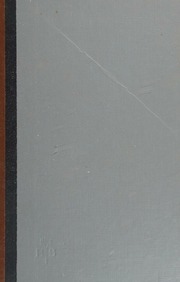
References and Quotes
1955 proved to be a year of great frustration to the reading combine because of the publication of Rudolf Flesch’s hostile Why Johnny Can’t Read, which precisely analyzed the trouble and laid it at the doorstep of the reading establishment. The book was a hot seller for over a year, continuing to reverberate through the reading world for a long time thereafter. In 1956, 56,000 reading professionals formed a look/say defense league called the International Reading Association. It published three journals as bibles of enthusiasm: The Reading Teacher, The Journal of Reading, The Reading Research Quarterly. Between 1961 and 1964, a new generation of academics shape-shifted look/say into psycholinguistics under the leadership of Frank Smith, an excellent writer when not riding his hobby horse, and Kenneth and Yetta Goodman, senior authors at Scott, Foresman who had been widely quoted as calling reading "a psycholinguistic guessing game." From 1911 to 1981, there were 124 legitimate studies attempting to prove Cattell and the other whole-word advocates right. Not a single one confirmed whole-word reading as effective.
"Moving to non-phonetic ways of teaching reading" means we stopped teaching kids the alphabet and stopped practicing the sounds different letters can make, and we switched to having them memorize whole words. If that doesn't make any sense to you, yeah, there's no secret genius to the method, it's about as bad an idea as it sounds. It's basically opting out of teaching kids to read, especially since no non-phonetic program actually has kids drill enough "sight words" to even partially match their spoken vocabulary. Now, this method wasn't adopted universally, and though you can't get hard numbers for it my estimate is that since the 1910's the amount of schools doing "word-method" derived teaching has oscillated between 30% and 70%. The oscillations came from waves of public backlash when parents became aware that schools were abdicating their responsibility to teach reading, like in the 50's with Why Johnny Can’t Read, the 60's with Learning to Read, the Great Debate, and most recently in 2022 the hit podcast Sold A Story. But at no point in the past 100 years of back and forth have the most prestigious and influential educational institutions ever wavered on their committed to word-method derived approaches. In waves of backlash they backpedal to "there's no one perfect way of teaching kids to read" and the galling "there's no reading crisis, scores have been mediocre to bad for decades" (yes, because we've been doing this non-sense for 100 years). They lay low for a few years and then come up with a re-branded version of the same thing, from the "word-method", to "look-say", to "whole language" to "3 cueing" to "balanced literacy". They've even invented new versions of "phonics" where you nominally teach phonics, but not enough for it to stick, so that their curriculum can count as "phonics based".